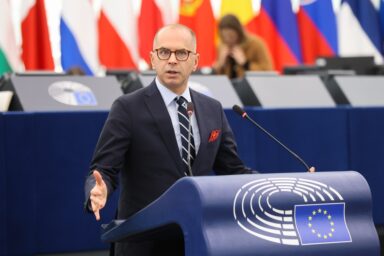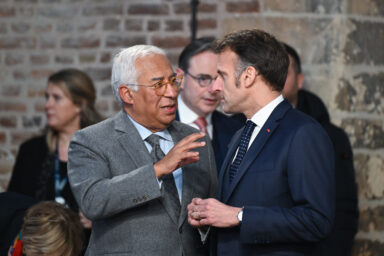As Raw Materials Week unfolds in Brussels, the EU finds itself at a crossroads: either accelerate efforts to secure the minerals underpinning its green and digital ambitions, or risk falling further behind global competitors. Industry giants gathered under Euromines warn that the upcoming ResourceEU plan will determine whether Europe can break its strategic dependence or deepen it.
“We need more financial resources and proposals, but the Resources Plan could be a good opportunity,” stated Eldorado Gold Corporation/Hellas Gold, KGHM Polska Miedź and Boliden in unison. The Commission is expected to publish the plan on 3 December, and industries are awaiting it closely to understand whether it will become a turning point or a potential setback for the European sector.
Too little too late from the EU?
Europe is entering a critical phase: the EU’s ability to secure access to critical raw materials is now considered a key component of its broader strategic security. The main challenge remains the EU’s Critical Raw Materials Act, which sets 2030 targets to reduce dependence on single suppliers and to build domestic extraction, processing and recycling capacities.
“Currently, the EU is highly dependent on external suppliers. China dominates the refining of rare earths and magnesium, while cobalt largely comes from the Democratic Republic of Congo and is refined in China. This dependency creates geopolitical vulnerabilities, as export restrictions or political tensions could disrupt supply chains and undermine industrial competitiveness and security. Securing critical raw materials is therefore crucial for economic resilience, technological sovereignty, and defence readiness,” the Euromines spokesperson told EU Perspectives.
The real challenge, moreover, will also be tied to the expansion of the sector and its link to the development of AI.
Developing the EU mining projects
The topic is not new in Europe: as highlighted by some of the major industries mentioned, the sector is now expanding, with demand having doubled or even tripled due to its connection to modern technologies such as power grids, photovoltaics, batteries and 3D printing and drones.
In parallel, the protection of the environment surrounding extraction sites and public health considerations are being closely monitored by Euromines, which aims to provide a general sustainability framework at European level. Discovering a deposit is not enough for Euromines and as Eldorado Gold Corporation/Hellas Gold S.A. underlined the process regarding the social license to operate as a best practice in the sector.
Few projects under the EU’s Critical Raw Materials Act have been labelled sensitive due to environmental and social concerns. – Euromines spokesperson
“Under the EU’s Critical Raw Materials Act, some projects usually face sensitive issues because they involve balancing strategic resource needs with temporary impacts on biodiversity before adequate rehabilitation, and most critically, the social acceptance and predictability of the permitting processes,” underlined the Euromines spokesperson, who also referred to the Sustainable Mining Initiative.
China ’manipulates markets and dictates rules’
Regarding the plan recently announced by the European Commission, the ResourceEU Plan, in response to China’s export restrictions, the strengths and weaknesses are numerous. According to Euromines, ResourceEU must propose a coordinated industrial strategy to secure, scale and anchor raw material value chains in Europe along four key pillars: Access to Finance, Value Chain Integration, Market Infrastructure and Liquidity, and Permitting.
“The strength of the plan include its strategic ambition, as it recognises raw materials as a structural challenge for EU competitiveness and sovereignty. The integrated approach links supply security with industrial strategy and aims to accelerate domestic extraction and processing. It is focused on policy reform, addressing bottlenecks in permitting, energy pricing and financing. Its emphasis is on value creation, seeking to build industrial ecosystems and retain more value within Europe,” Euromines spokesperson said.
You might be interested
Over-reliance on domestic production is considered unrealistic by critics, true self-sufficiency may take decades. – Euromines spokesperson
Conversely, the weaknesses revolve around implementation risks, since without deep structural reforms the strategy risks becoming yet another procedural layer instead of a transformative one. “Furthermore, permitting delays remain significant despite attempts at streamlining, and an over-reliance on domestic production is considered unrealistic by critics, who argue that true self-sufficiency may take decades and that diversification through trade could be more effective, even if insufficient for full European resilience. Finally, the framework still lacks robust mechanisms to attract private capital at scale, leaving investment protection unclear,” the spokesperson concluded.
During this week, Stéphane Séjourné, Commissioner for Prosperity and Industrial Strategy, has launched a second strategic projects initiative, and visited Argentina. He will also travel to South Africa to diversify European supply.











